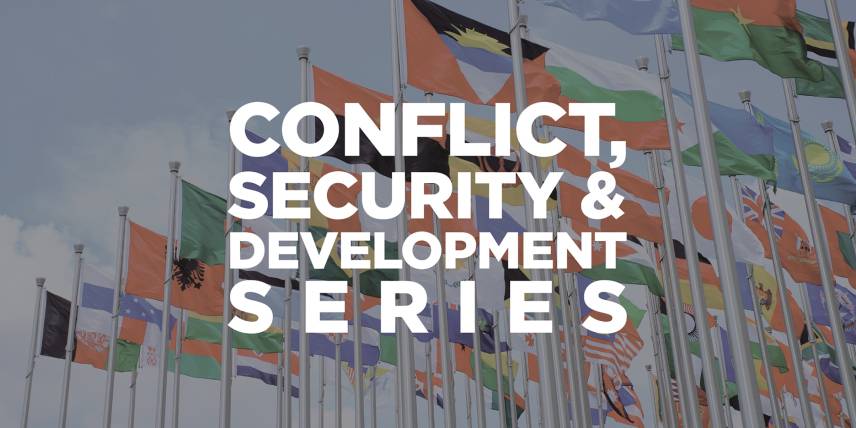Spring 2022 Conflict Series - Domestic Institutions, International Collective Action Problems, and International Water Rights Conflicts
Each Tuesday, the Conflict, Security, and Development Series will examine new research, discuss creative policy approaches, and highlight recent innovations in responding to the challenges of security and development in conflict and post-conflict situations.
Muserref Yetim, Clinical Associate Professor in the Program in International Relations at New York University.
In international watercourses, if the watercourse states coordinate their actions and cooperate on the basis of the principles of integrated water resource management, which treats the basin as a whole and aims to coordinate the development and management of water, land, and other resources, they could achieve social equity, economic efficiency, and ecological sustainability. If, however, they pursue unilateral exploitation of the resources in their portion of the watercourse, the upper watercourse states alone will have the higher payoff especially if the majority of the water originates within their borders. Even so, all the watercourse states would be better off if they cooperate. The solution to the collective action dilemma in these types of situations requires high levels of trust and reciprocity, in other words, a strong sense of community among the actors.
In this paper, I focus on the nature of a state’s governing institutions and their impact on the solutions (and their feasibility) of international collective actions problems, specifically the emergence of international institutions that determine water rights among riparian countries. I present a case study analysis of the dispute over the Euphrates and explore the complex interaction of the transformation of governance structures and ecological changes in achieving efficient water resource management.
Muserref Yetim is a Clinical Associate Professor in the Program in International Relations at New York University. Raised in Istanbul, her research interests include natural resource conflict, international relations, international political economy, environmental conflict, and the political economies of the Middle East and Latin America.
Her current research projects focus on global climate change and green industry subsidies, specifically how the discourse is framed and how this then leads to inefficient policies, and on democratic backsliding and FDI in emerging economies, particularly Eastern Europe and Turkey.
She is currently working on three papers that are related to her long-term projects mentioned above:
The first paper, entitled “Domestic Institutions and Global Collective Action Problems,” focuses on the nature of a state’s governing institutions on the solutions of international collective actions problems, especially the emergence of international institutions that determine pollution rights, water rights, and forest rights.
The second paper focuses on the recent democratic backsliding of Turkey and entitled “Democracy and its Discontent in Limited Access Orders: The Rise of AKP’s Populist Authoritarianism in Turkey.” In this paper, she explores the links between governing economic and political institutions and how they interact in explaining the waxing and waning of openness in governing institutions and the success of nations.
The third paper is entitled "Democratic Backsliding and FDI in Emerging Economies: Evidence from Eastern Europe." Some of her published work includes: “Governing International Common Pool Resources: International Watercourses of the Middle East,” Water Policy Journal 4 (2002), pp. 305–321; “Governing International Rivers of the Middle East,” World Affairs 166 (2003), pp. 81–94; “The Emergence of Cooperation in International Water Resources,” In EAU: Inventer la coopération, Le Courrier de la Planète Publications No. 70, 2003; and as co-author, “The Impact of Ethnicity and Socialization on Definitions of Democracy: The Case of Mexican Americans and Mexicans,” Mexican Studies 19 (2003), pp. 81–102.
